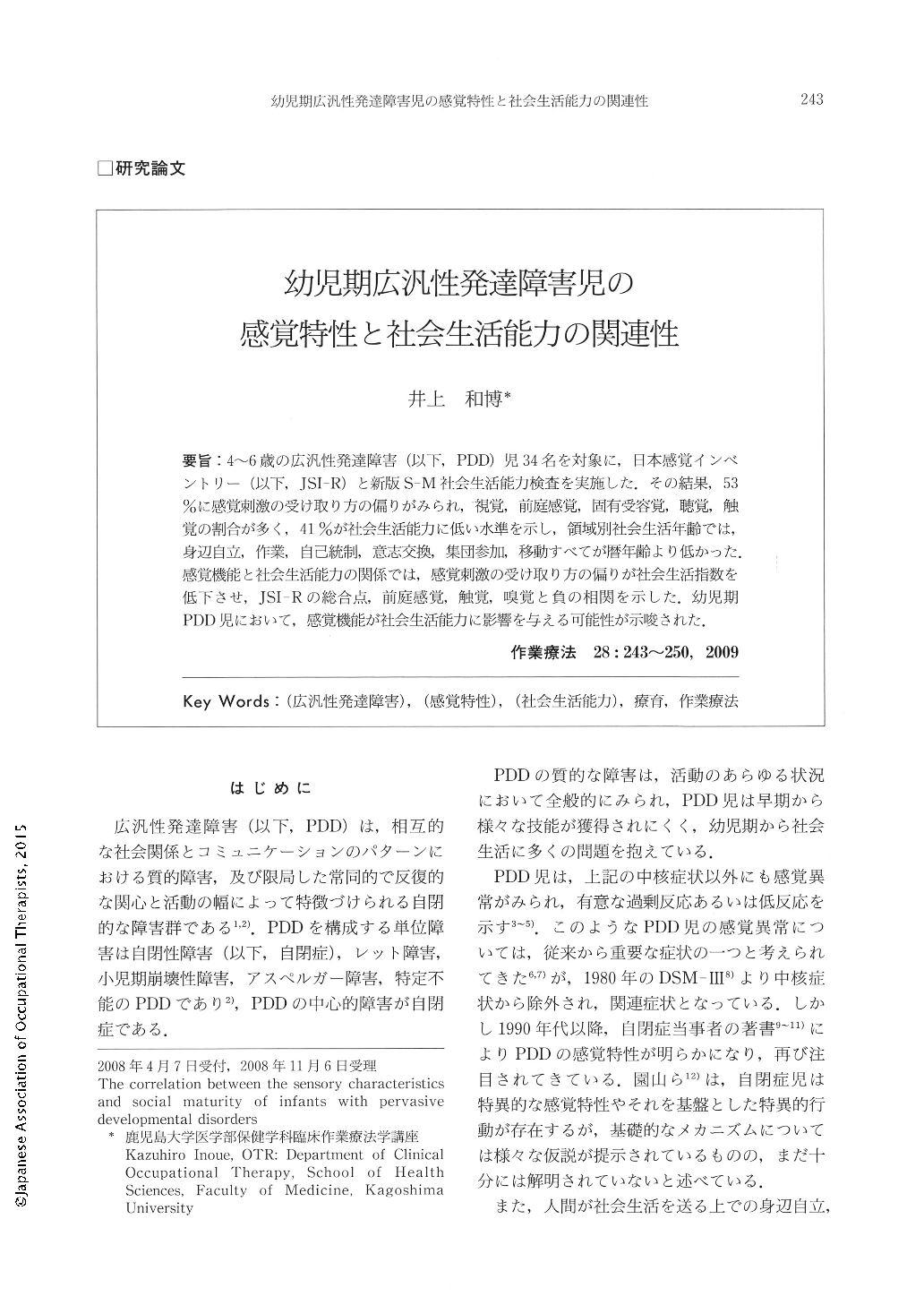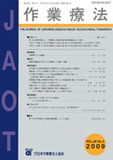Japanese
English
- 販売していません
- Abstract 文献概要
- 1ページ目 Look Inside
- 参考文献 Reference
- サイト内被引用 Cited by
要旨:4〜6歳の広汎性発達障害(以下,PDD)児34名を対象に,日本感覚インベントリー(以下,JSI-R)と新版S-M社会生活能力検査を実施した.その結果,53%に感覚刺激の受け取り方の偏りがみられ,視覚,前庭感覚,固有受容覚,聴覚,触覚の割合が多く,41%が社会生活能力に低い水準を示し,領域別社会生活年齢では,身辺自立,作業,自己統制,意志交換,集団参加,移動すべてが暦年齢より低かった.感覚機能と社会生活能力の関係では,感覚刺激の受け取り方の偏りが社会生活指数を低下させ,JSI-Rの総合点,前庭感覚,触覚,嗅覚と負の相関を示した.幼児期PDD児において,感覚機能が社会生活能力に影響を与える可能性が示唆された.
34 children between the ages of 4〜6 years with pervasive developmental disorders (PDD) were investigated using the test of Japanese Sensory Inventory (revised) and the new Social Maturity Scale. The results indicate that 53% of the PDD subjects showed a large inconsistency in reception of visual, vestibular, proprioceptive, auditory and tactile sensory stimuli. Furthermore, 41 % of the PDD subjects exhibited low levels of social maturity, and were found to be lower in all aspects of social maturity including self help, occupation, self direction, communication, socialization and locomotion than a control group at the same ages. Regarding sensory function and social maturity, the inconsistency in reception of the sensory stimuli lowered the social quotient, and indicated a negative correlation with the total sensory score, including the vestibular, the tactile and the olfactory stimuli. These results suggest that the sensory functions of the PDD infant might affect his or her social maturity.

Copyright © 2009, Japanese Association of Occupational Therapists. All rights reserved.


